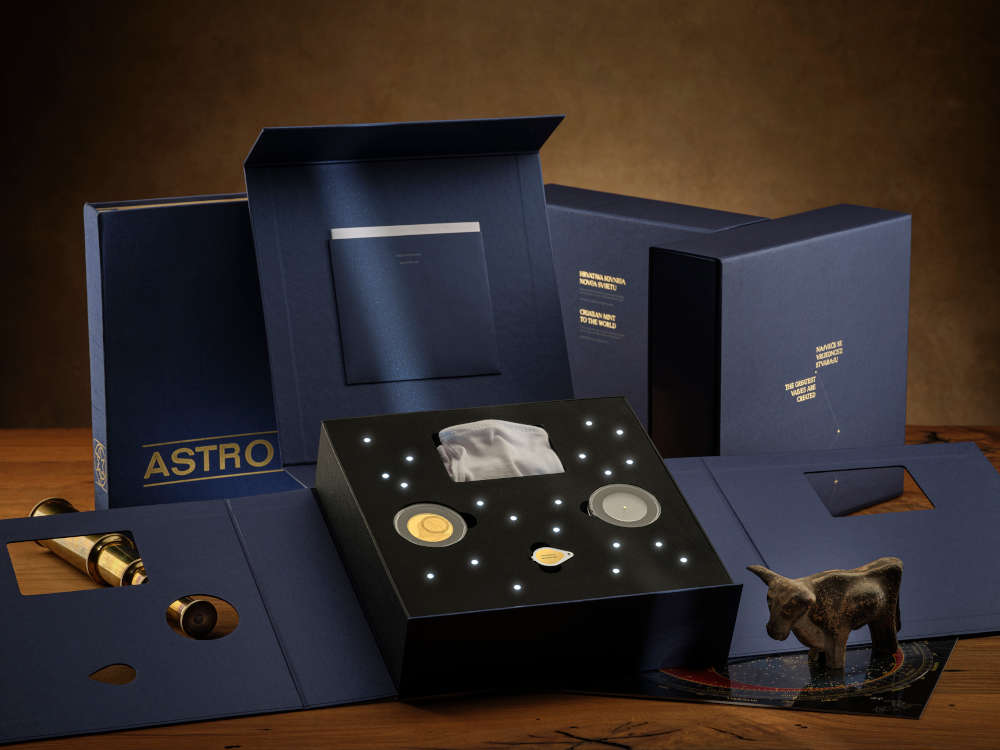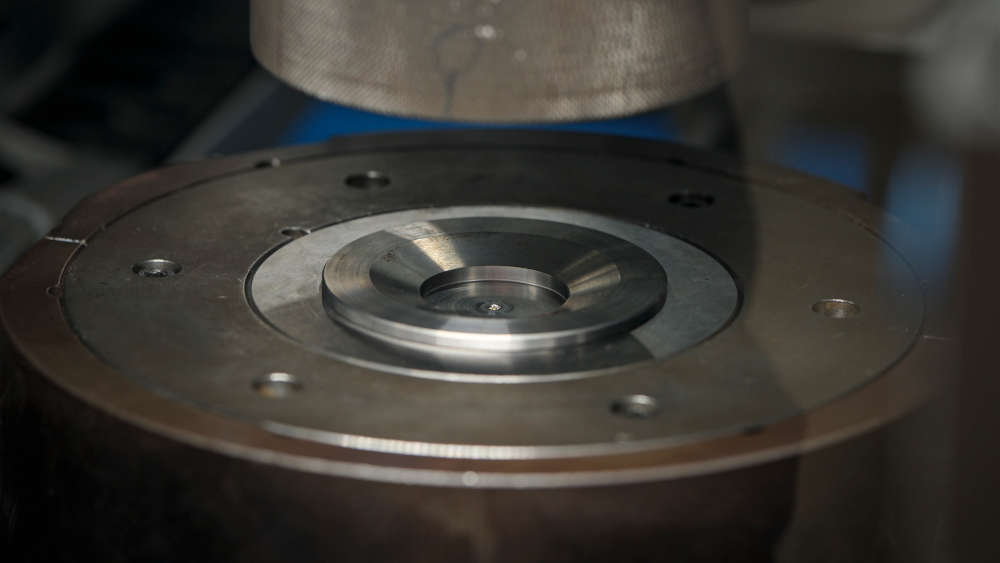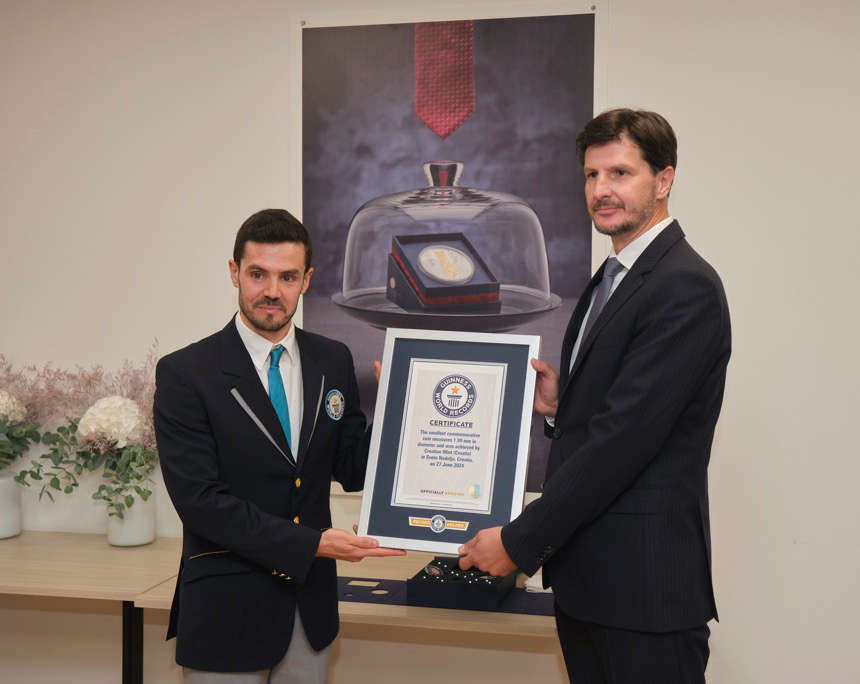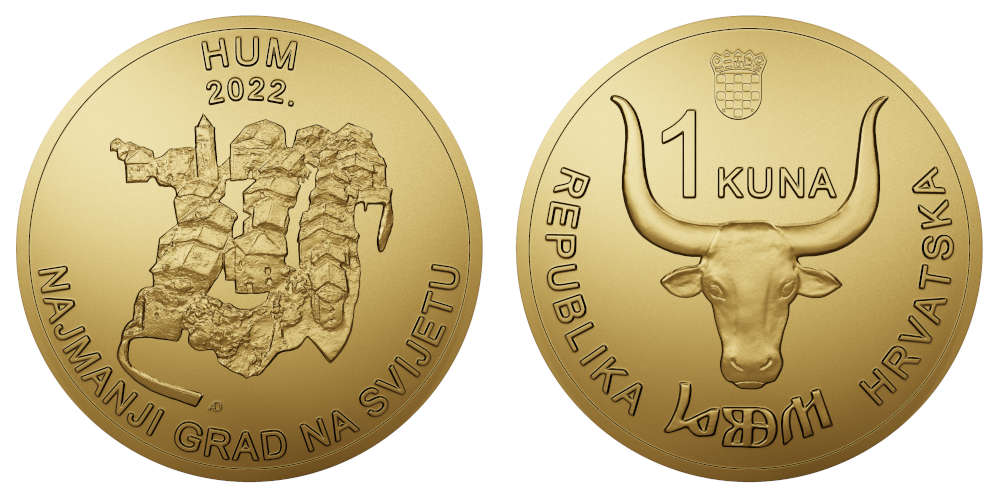The World’s Smallest Coin
Since 27 June 2024, the world’s smallest coin has come from Croatia. The 2022 1-kuna coin Hum with a diameter of 1.99 mm and a weight of 0.05 g was officially recognized as the world’s smallest coin, setting a Guinness World Record. In a festive ceremony, a representative of Guinness World Records handed over the certificate. The 1-kuna Hum coin has thus replaced Swissmint’s 1/4-franc Albert Einstein as the world’s smallest coin.
Content
A Numismatic Monument to Mark Croatia’s Change in Currency
The coin had been created to celebrate a new chapter in monetary history: On 1 January 2023, Croatia introduced the euro and bid farewell to the kuna. The kuna currency has been considered a symbol of national identity since the Middle Ages. Damir Bolta, President of the Management Board of the Croatian Mint, explains how the idea of creating the world’s smallest coin came about: “We wanted to set a lasting monument to the kuna, before it disappeared. To proudly commemorate this currency change, the Croatian Mint decided to create the world’s smallest coin. And our plan succeeded.“
The Perfect Topic: Hum – the World’s Smallest Town
The topic was quickly chosen, after all, the world’s smallest town is located in Croatia. It is called Hum, located on a mountain top in Istria and just about two dozen people live there. Despite the small population, Hum has had the right to call itself a town since the Middle Ages because it had everything that made for a town at the time: a wall, a self-elected government, and its own laws.
Therefore, the obverse of the world’s smallest coin depicts the world’s smallest town from a bird’s eye view. The coin’s reverse shows the head of an Istrian bull with the long horns that are typical of this species. Of course, this depiction is also connected to the town of Hum. Ana Divković, the artist in charge of the design, recreated the bull’s head that forms the doorknob of the gate of the town of Hum.

The world’s smallest coin was offered in an elaborate packaging together with the 1000-kuna commemorative coin dedicated to the Višnjan Observatory. Photo: Croatian Mint.
A Long Way and Many Technical Obstacles
Producing the world’s smallest coin required a marvel of engineering – which is why the Croatian Mint is right to be proud of this achievement. Even the artist herself faced completely new challenges when designing the coin. She had to create a tiny motif that was still recognisable. Ana Divković recounts: “The starting point was to reduce the motif to a tiny, yet recognizable design. On the reverse I ventured to depict the entire town to show how small it is. I completely trusted and relied on the skills of the experts at the mint to transform this design into a die.“
Goran Paladin, the production manager in charge of this project, empathizes how difficult it was to create the dies for such a minuscule coin: “You have to be aware of how tiny 1.99 mm really is. Therefore the common method of creating a die by means of a reducing machine did not work.” In fact, the head of the milling tool that is normally used to create dies has a diameter of 0.3 mm. Thus, it is larger than the coin itself. Goran Paladin reveals why they succeeded nonetheless: “Therefore, we produced our die with an extremely accurate engraving tool that works with laser. In this way, we were able to reduce all the details of the design to the right size.”
However, Goran Paladin does not reveal how the world’s smallest blanks were created: “How we did it will remain a secret. It wasn’t easy, but we found a very good solution.” The minting process itself was also very challenging, as Goran Paladin explains: “We minted the coins with a Sack & Kiesselbach minting press of the TMA 350 type. But of course we had to make special adjustments.”
Another challenge was the packaging – with such a small coin, it is difficult to present the piece in an appropriate way. Therefore, the Croatian Mint decided to market the coin in a set with the commemorative coin dedicated to the Višnjan Observatory. The Croatian design studio Izvorka Jurić created an elegant box with LED lights that imitated a night sky in which the two coins shine. The box also came with a magnifying glass, enabling collectors to observe the beauty of the world’s smallest coin in all its details.

During the minting process, the engineers of the Croatian Mint had to master unprecedented challenges. Photo: Croatian Mint.
A Favourite of the Public
The set quickly became a favorite of the public and sold out immediately. That’s no surprise. Only 199 specimens were produced of the two pieces. They are now trading at more than twice their issue price. The fixed issue price – in combination with the precious metal price – of 22,906 kuna was equivalent to 3,040 euros at the time. In February 2024, a set changed hands on the secondary market for the impressive sum of 6,900 euros. Currently, only one offer is available online: the seller wants 7,999 euros for it. It remains to be seen whether the price will continue to rise now that the piece has been recognized as the world’s smallest coin.
A Special Tribute to the Old Kuna
Goran Paladin is pleased about the success: “With the world’s smallest coin, we wanted to show that we – the Croatian Mint, a newcomer in the market of innovative commemorative coins – are capable of keeping up with all the other mints in the world. That’s why we produced the world’s smallest coin. We were capable of fitting an entire town on it.“
This was not only appreciated by collectors of Croatian coins but also by Guinness World Records.









